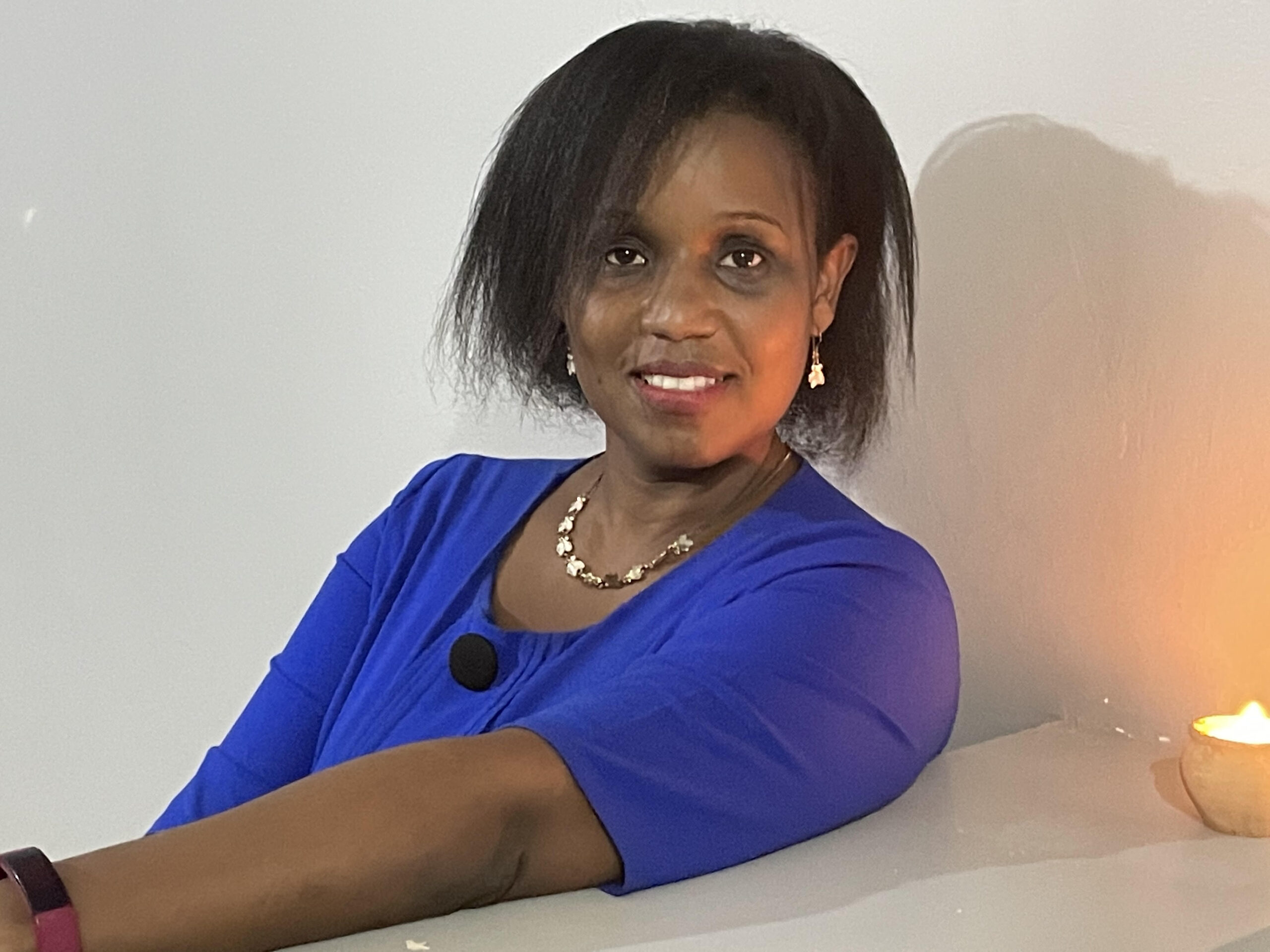
Pamela Bella Nyamutoka Katooro is IIRR’s Africa Regional Director and Country Director for Uganda providing leadership at the country and regional levels. Before joining IIRR in 2010, Pamela worked with ActionAid and UNDP/UNV.
Her career spans over 15 years as a lawyer and development specialist. She believes in continuous innovation and has led IIRR in the design and implementation of several programs, especially rights-based change programs, that have led to poverty reduction, particularly in rural areas.
Q: What are your core principles and how do they tie in with IIRR?
Pamela recognizes the value of diverse partnerships and works together with local communities, policymakers, and other various stakeholders from the public and private sectors in her role with IIRR.
“Every stakeholder has a role to play when it comes to development. It is extremely important. You cannot do anything on your own; that is why working with various stakeholders is key.”
Another one of her core principles focuses on accountability – not just financial accountability but also being accountable to rural peoples and the constituents involved. Pamela is constantly looking to ensure that whatever actions IIRR undertakes will bring impact and meaningful change to rural communities.
“We also must be accountable to rural persons as our key constituents. At all times I must keep an eye out and ask, is what we are doing making a difference?”
A third core principle for Pamela focuses on equity.
IIRR works with many vulnerable and marginalized communities. Thus, “ensuring equity is very important if we are to see any changes in their lives. Marginalization is created because of a lack of equality, especially gender equality. A lack of equitable rights and resources creates the marginalization of peoples. This also includes resource equity; making sure financial and natural resources are provided in an equitable manner. How do we find equity in how we manage our natural resources? In land how do we ensure rural communities have these land rights and can access and control resources? Equality across several spectrums is of utmost importance.”
Q: As Africa’s Regional Director, we know there are many struggles. What are the main challenges you are seeing on the ground today?
“Natural resources are a major problem. We are experiencing climate change at high levels which brings food insecurity. There is very high youth unemployment. We are also seeing a lot of conflict. Almost in every one of the countries where IIRR works, there are pockets of conflict, be it cross boundary, natural resource based, or pastoralist – it takes many forms and causes populations to migrate which leads to further food insecurity, scarcity of water and land. Climate variability also causes conflicts and presents a big challenge.”
Identifying other challenges, Pamela continues “desertification in Sub-Saharan Africa is also increasing. People are cutting trees or encroaching in wetlands for example – so potential solutions for climate change are being destroyed due to population pressures. Another challenge is slow paced industrialization. The balance of trade is low, and we are not seeing enough trade of farmer value products; they are not getting enough value addition. Access to technology is another big problem.”
Pamela is quick to add that these challenges “can also be opportunities to see how we can become more innovative in terms of technology and natural resource management.”
Q: What is the focus of IIRR in Africa today?
“We are focusing on building partnerships. The Africa region is revamping. We are seeing more partnerships with the private sector and expanding our reach with many like-minded organizations. Building a strong partnership base is key and we need to explore how we can increase our resource base to support more multi-country programs that can be done at an inter- and intra-regional basis.
“Other priorities include supporting countries like South Sudan and Zimbabwe, as operations in these two countries are still young; South Sudan also is still a fragile environment. So right now, giving a little more focus to these two country units is very important while maintaining our already existing operations in other countries of the region.”
Q: What impact do you see IIRR is creating in Africa?
“IIRR impacts millions, especially pastoralist and smallholder farmer communities. It is imperative we focus on innovation and partnerships with the private sector – for example, getting involved with carbon credit sequestration programs in order to support climate resilience. We are also promoting our flagship program, Mission Net Zero.
“At the same time, we are doing a lot of knowledge management by bringing together different experiences. We recently completed a project (MASHAV) with the UN FAO where we documented innovations from trainees from thirteen countries in an Israeli Institute, which allowed us to share and learn about experiences on livestock technologies for resilience. A book will be published soon which will be a major knowledge product that will be shared widely. We need to continuously increase our knowledge base on key innovations.
“We also continue to conduct capacity building and offer applied learning for rural communities, especially through farmer field schools and regenerative agriculture, and we hope to increase this scope next year.”
Q: What currently deserves more attention in your region?
“Translating partnerships into more resources and getting more multi-country projects are key focus areas so we are able to scale the various innovations and knowledge generated over the years. Tracking our impact and visibility, especially in regional and global policy influencing spaces, will be an important focus of attention as well.”



